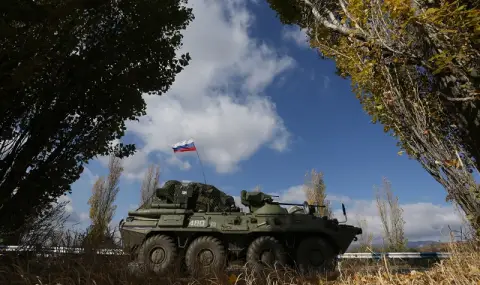< p>Russia remains committed to its obligations to ensure Armenia's security both in a bilateral format and through the Collective Security Treaty Organization (CSTO). This was said by the Russian ambassador in Yerevan, Sergey Kopirkin, in an interview with "Izvestia" newspaper, published on Monday, quoted by "Interfax".
"When we talk about issues of ensuring Armenia's security, we adhere to the position that there are no comparable real alternatives to Russian-Armenian allied cooperation, including within the framework of the CSTO, Russia remains committed to its obligations to ensure Armenia's security both in a bilateral format and through the ODKS", Kopirkin told the publication.
He also noted that Moscow also relies on the active involvement of Armenian partners in joint efforts to build a system for an equal and indivisible security system on the Eurasian continent, the idea of which was presented by Russian President Vladimir Putin on June 14. .g. year in a meeting with the leadership of the Russian Foreign Ministry and expressed again during the recent BRICS summit in Kazan.
Talking about reaching mutually acceptable compromises between Yerevan and Baku, Kopirkin noted that this is a "difficult and time-consuming process".
"Russia is always ready to assist our Armenian and Azerbaijani partners in settling bilateral relations, following the spirit and letter of the set of trilateral agreements between the leaders of Russia, Armenia and Azerbaijan for 2020-2022, the forms and their volumes In this regard, we are pleased that at the BRICS summit in Kazan on October 24, productive contacts took place at the highest level. Armenia and Azerbaijan, which allowed us to give a useful boost to the dialogue for the normalization of relations," the ambassador said.
We recall that ethnic Armenians in Nagorno-Karabakh enjoyed de facto independence from Baku for more than three decades until September 2023, when Azerbaijan retook the territory in a lightning offensive and expelled around 100,000 Armenians.
The two countries have since continued peace talks aimed at demarcating their shared 1,000 km border, which remains closed and heavily militarized.
In May, Armenia returned to Baku four abandoned Azerbaijani villages it had controlled since the early 1990s. The fate of several more villages, located on small enclaves of land surrounded by the other side's territory, remains at stake.
In addition, Azerbaijan, whose population is several times that of its long-time rival, is demanding that Armenia change its constitution and remove the indirect reference to Nagorno-Karabakh independence as part of the peace process.
Armenia is trying to forge closer ties with the US and other Western allies as its relations with Russia deteriorate. Russia has been Armenia's main economic partner and ally since the collapse of the USSR in 1991. Armenia hosts a Russian military base and is part of the Moscow-led security alliance, the Collective Security Treaty Organization.
